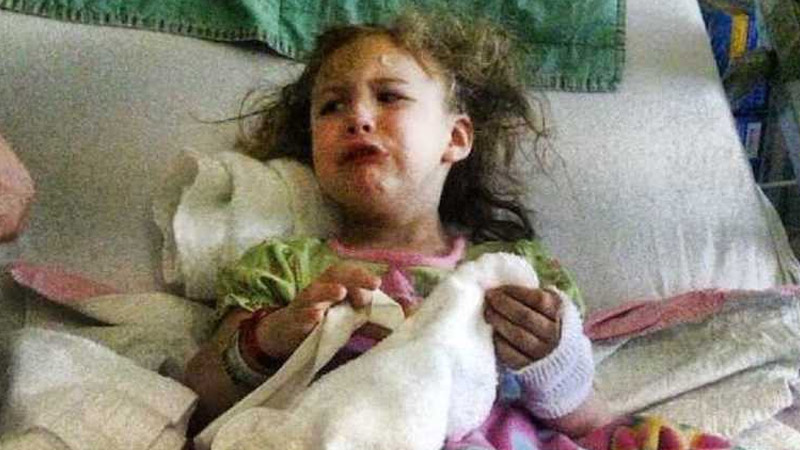
Anj, the mother of a young girl named Madie, recounted a distressing incident when her child was just five years old and had recently begun attending school. According to Anj, Madie’s teachers had called to inform her that the youngster was moving in an unusual manner, with her head tilted back and her arms flailing, as she revealed in an interview with LoveWhatMatters. Anj promptly contacted the doctor, who recommended bringing Madie in as soon as possible because she may have had a seizure.
The intrepid mother wasted no time and immediately made an appointment with a neurologist, who conducted a test to induce a seizure in the patient. Anj also claimed that medical professionals performed an MRI scan, which allegedly revealed aberrant activity. The little girl was diagnosed with absence and petit mal seizures, which was frightening news for the family, but at least they understood what was wrong and how to assist her. They believed Madie was improving after receiving seizure medication to prevent the seizures.
However, the girl continued to experience what they initially believed to be seizures, which persisted for longer than the few seconds they were told they would last. Despite the neurologist increasing her medication or trying new ones, the seizures seemed to be getting worse. Madie was given the opportunity to try four different seizure drugs in a short period of time, some of which had terrible side effects, such as allergies and other negative effects. Even though EEGs revealed normal brain activity, she was now experiencing up to 15 episodes per day.
When Anj and Madie visited Dr. Coffman, he performed a battery of tests and analyzed the video footage Anj had provided. After a brief review of the video, Dr. Coffman immediately diagnosed Madie’s condition as PNKD, or paroxysmal nonkinesigenic dyskinesia. He informed the family that if genetic testing came back positive, Madie’s immediate family would need to be examined at her next checkup.
At that appointment, the doctor explained that although some children’s problems end around puberty, others may experience worsening symptoms. Madie’s daily routine was frequently disrupted. The family celebrated a milestone at the end of her seventh school year, which they were uncertain they would ever witness. Madie completed her entire seventh-grade year without a single episode! The family now makes regular visits to the children’s hospital to monitor her condition as she grows older.